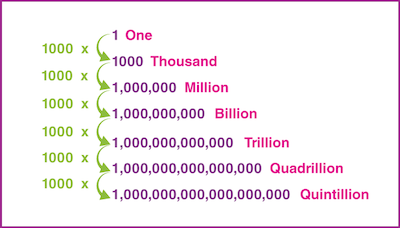A trillion here, a quadrillion there …
 … and pretty soon, you’re talking real money (to rework Senator Everett McKinley Dirksen’s apocryphal remark).
… and pretty soon, you’re talking real money (to rework Senator Everett McKinley Dirksen’s apocryphal remark).
The last time I blogged about Citibank, it had made a mistaken overpayment of nearly US$1 billion (their restitution claim was successful on appeal). The same post noted another bank’s mistaken overpayment of US$50 billion (the payee co-operated in the reversal of the transaction). These are staggering numbers. But they pale into insignificance beside a Citibank overpayment in the Irish Times today:
Citigroup erroneously credited client account with $81tn in ‘near miss’
Citigroup credited a client’s account with [US]$81 trillion (€77 trillion) when it meant to send only [US]$280, … The erroneous internal transfer, which occurred last April and has not been previously reported, was missed by both a payments employee and a second official assigned to check the transaction before it was approved to be processed at the start of business the following day.
A third employee detected a problem with the bank’s account balances, catching the payment 90 minutes after it was posted. The payment was reversed several hours later, … No funds left Citi, …
The Guardian put the figure in context:
…Citigroup credited client’s account with $81tn before error spotted
US bank meant to send $280 but no funds were transferred despite ‘fat finger’ mistake
… A transaction of [US]$81tn (£64tn) would be so huge that it would be unlikely to go through any bank’s systems.






